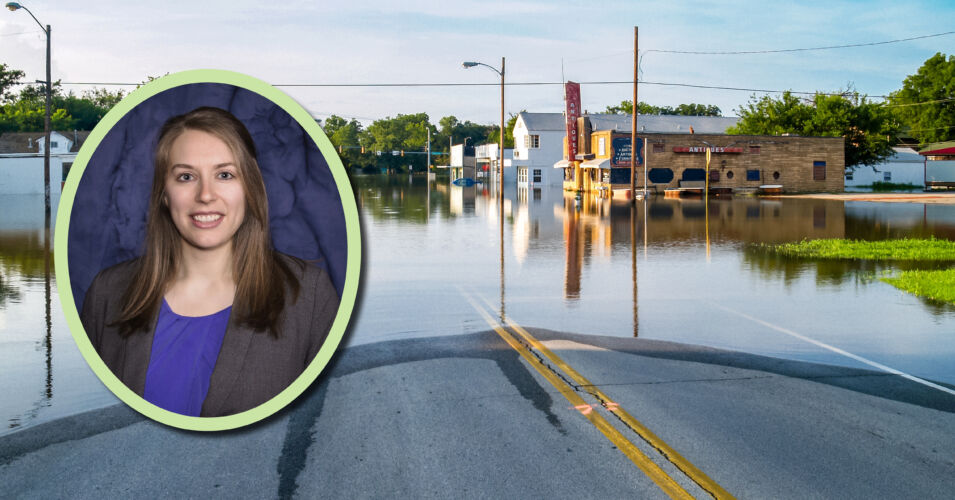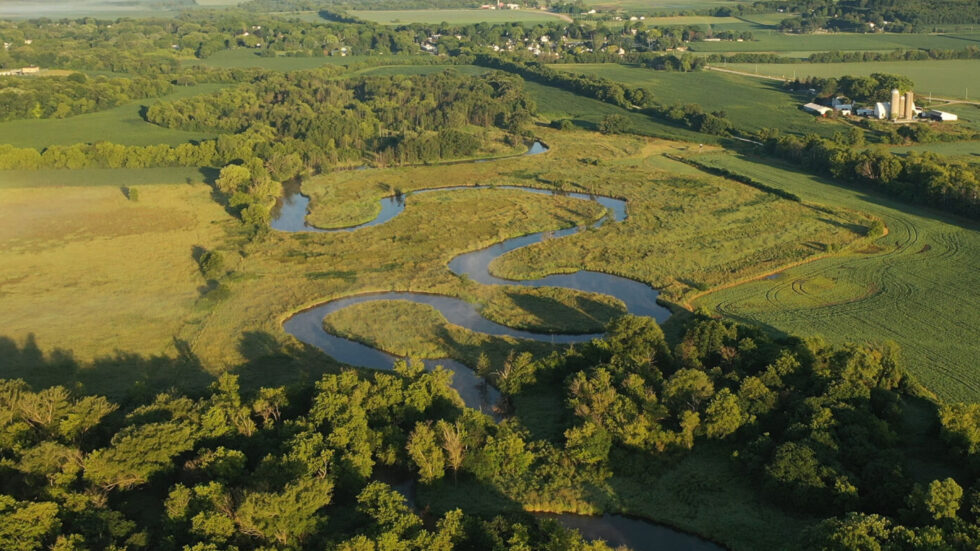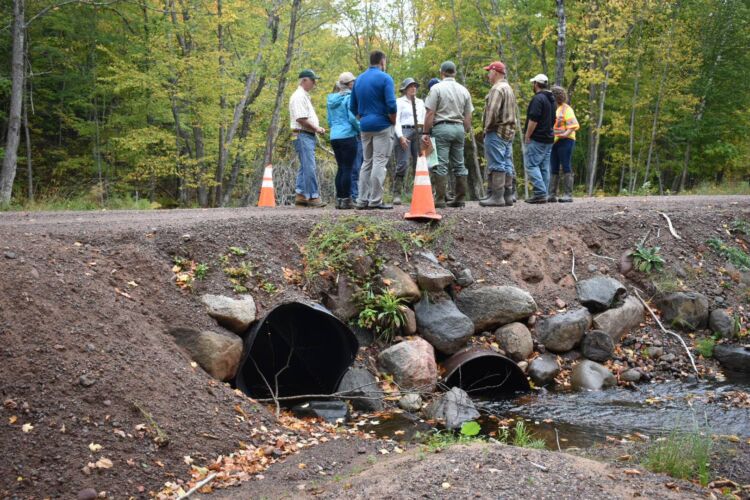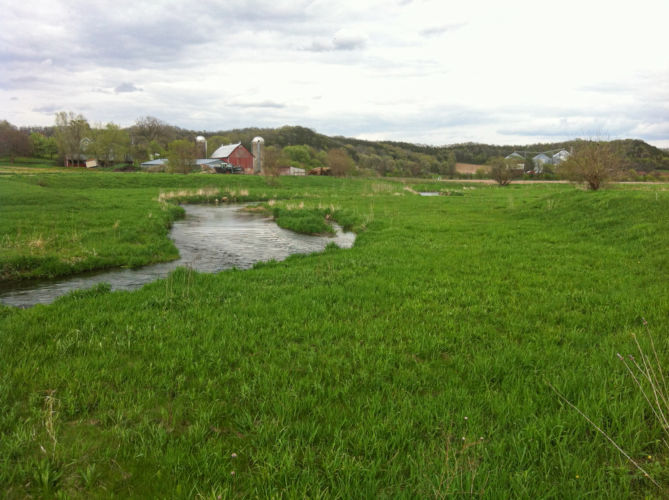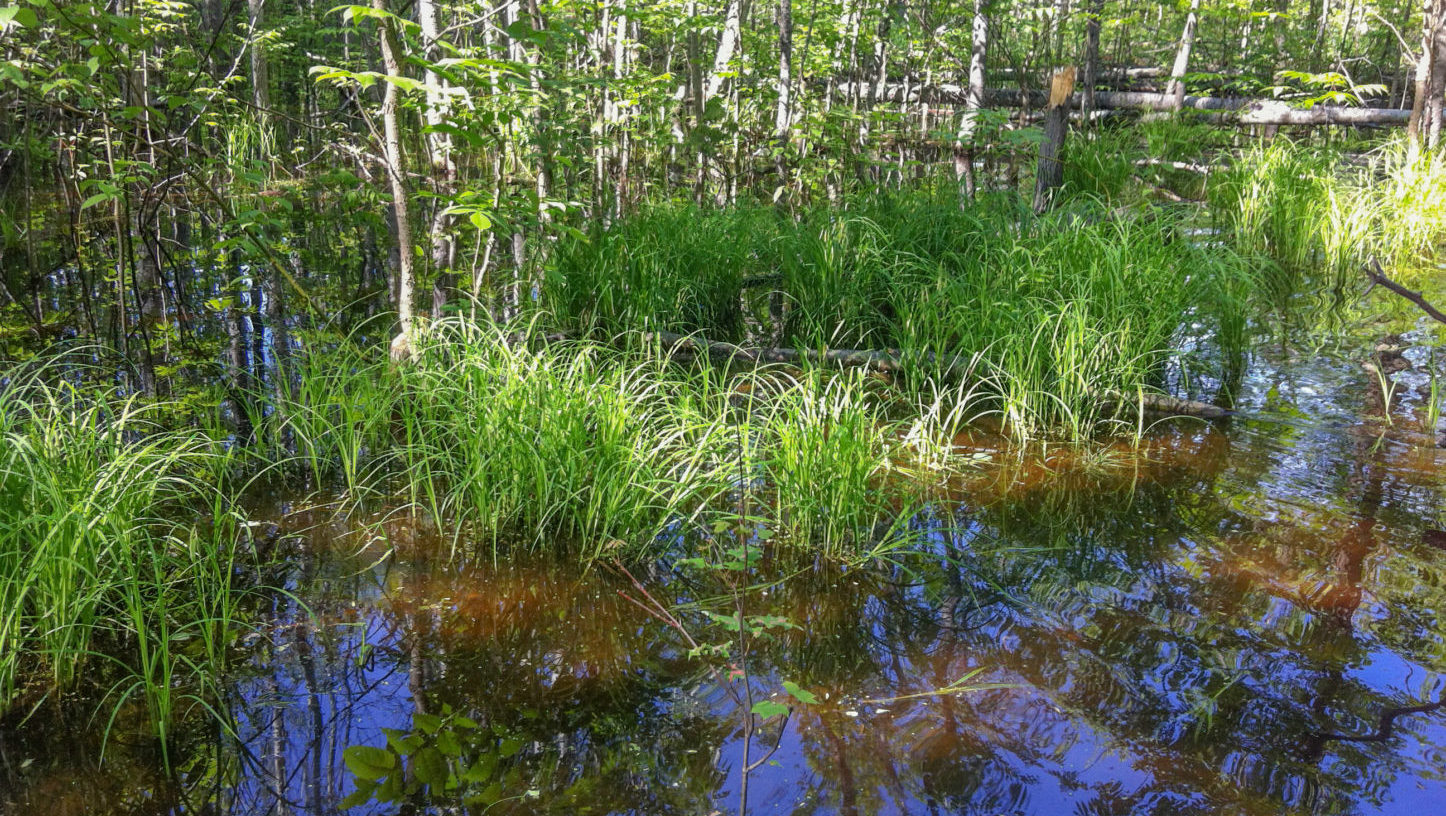Our agenda for the current legislative cycle
Before each two-year legislative cycle, we take the time to reflect on recent accomplishments and lay the groundwork for new campaigns.
We’re pleased to present our 2023-2024 policy priorities below. The list doesn’t include everything we anticipate working on in the next two years, but it does reflect the high impact opportunities we’ve identified as ripe for action. It includes a mix of legislative, agency, and local government initiatives. This multi-tiered approach helps demonstrate what successful local wetland conservation looks like while also building the supports needed to accelerate its implementation.
2023-2024 Policy Priorities
1. Advance wetland-flood resilience legislation – This session we will work to help establish a pre-disaster mitigation grant program to enable flood-prone communities to assess the root causes of flooding and restore wetland, stream, and floodplain hydrology to reduce flood risks.
- May 2023 Update: SB 222/AB 222 has been introduced with strong bi-partisan support! The bill would establish a pre disaster mitigation grant program to help flood-prone communities assess the root causes of flooding and restore wetland, stream, and floodplain hydrology to reduce flood risks. See pages 6-7 for more information on the bill’s objectives and status, WWA’s efforts to support its introduction, and what’s next on the road to enactment.
- August 2023 Update: AB 222/SB 222, bills that would create a Pre-Disaster Flood Resilience Grant Program (emphasizing hydrologic assessment and restoration), are advancing. We had a great turnout at the hearings, and the bills passed out of both committees unanimously. SB 222 also passed the Senate unanimously in June. More recently, the Legislature and Governor approved $2 million in funding for the program in the state budget. We look forward to this legislation being scheduled for a vote in the Assembly in September.
2. Support use of Natural Flood Management (NFM) to protect vulnerable roads, culverts, and bridges – As we wrap up Phase 1 of the NFM pilot project in Ashland County we are working to support local adoption of NFM policies and practices focused on protecting transportation infrastructure. We are also exploring opportunities to export this work to new communities.
- May 2023 Update: WWA’s efforts to expand the use of NFM just got a big boost in the form of a $196,000 grant from the Water Solutions Fund in collaboration with Mosaic’s Movement Infrastructure program. The award will support a two-year collaboration with Trout Unlimited and the Wisconsin Towns Association focused on increasing federal investments in NFM in Wisconsin.
- August 2023 Update: Construction plans for projects demonstrating natural flood risk reduction strategies in Ashland County were approved at two sites within the same catchment in the Marengo River watershed. Construction at the first site will involve innovative practices to restore a headwater wetland impacted by gully erosion and is expected to begin in September. This work is funded by 2019 WI Act 157, which Wisconsin Wetlands Association championed.
3. Support establishment of a new hydrologic restoration general permit – We remain engaged in the work to develop this permit following passage of 2021 Act 77. Efforts include serving on a Wisconsin Department of Natural Resources advisory group, providing drafting assistance, and supporting training and outreach activities to build demand for General Permit-eligible wetland, stream, and floodplain restoration work.
- May 2023 Update: This work continues to slowly—but steadily—advance. We expect to receive and provide input on the next draft of this important new tool before the end of May.
- August 2023 Update: We continue to serve on a workgroup providing input on the development of the HRGP. Wisconsin Department of Natural Resources is working diligently and collaboratively to ensure the final product complies with the enabling legislation (2021 WI Act 77) and expects to release the HRGP for public comment this fall.
4. Increase integration of stream and wetland practices for runoff management – With support from a grant from the US Environmental Protection Agency, Wisconsin’s Department of Agriculture, Trade, and Consumer Protection (DATCP) hired WWA to provide policy analysis to inform updates to the state’s runoff management program rules (ATCP 50). We are also helping to plan and deliver related trainings for DATCP’s Conservation Engineering staff and county land conservation departments.
- May 2023 Update: We eagerly await the public release of proposed revisions to the state’s runoff management program rules (ATCP 50) that are expected to increase cost-share eligibility for stream and wetland (e.g., hydrologic) restoration practices. Meanwhile, in April, we hosted the second in a series of trainings designed to increase the capacity of DATCP’s Conservation Engineering staff and others to plan and install hydrologic restoration projects.
- August 2023 Update: On June 14th, we testified before the Department of Agriculture, Trade, and Consumer Protection (DATCP) in support of proposed changes to ATCP 50, which will increase cost-share eligibility for hydrology-focused stream and wetland restoration practices. We also hosted the first of five field-based trainings to increase the capacity of DATCP Conservation Engineers to design and install hydrologic restoration projects.
5. Focus on floodplain restoration – Healthy, connected floodplains reduce flooding, improve water quality, and enhance habitat, but floodplain restoration can be challenging. We are working with partners and members to identify and advance state-based reforms to reduce the time and expense associated with floodplain restoration.
- May 2023 Update: We continue to provide project management support to floodplain restoration demonstration projects in Wisconsin’s Lake Superior basin and Driftless regions. This work includes high-level engagement with state and federal agencies on matters of both policy and practice.
- August 2023 Update: We are currently compiling a report about lessons learned throughout the coordination of Act 157-funded demonstration projects. This report will include information about challenges for restoration in FEMA-regulated floodplains and recommendations for how to address them.
As we did for prior sessions, we will provide progress updates on these priorities throughout the year. We also invite your participation in these campaigns. To get involved, subscribe to our emails, like us on Facebook, follow us on LinkedIn, or contact a member of our policy staff for more details on how you can help!
Related content
Wisconsin Towns Association Guest Column: Pre-Disaster Flood Resilience Bill
Learn about the Pre-Disaster Flood Resilience Bill that WWA has helped craft.
Success! Revised rule breaks down barriers to hydrology-focused wetland and stream restoration practices
It’s a wrap! Outcomes from a FEMA-funded pilot project
Governor Evers signs bill encouraging more wetland and floodplain restoration
Learn more about the hydrologic restoration general permit that we are advocating for.


